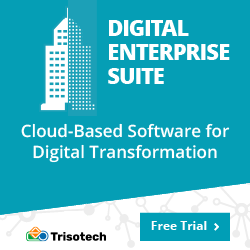What is Azure ExpressRoute?
Organizations use cloud services for making their workflows quick and efficient. This work can be confidential at times and having such sensitive workflows on the cloud over the public internet can make them vulnerable to attackers. Thus, having a private connection to the cloud services is necessary to enhance security among other important factors.
In this blog, we will discuss about the secure connection service Azure ExpressRoute through the following topics:
- What is Azure ExpressRoute?
- Features of Azure ExpressRoute
- Azure ExpressRoute Connectivity Options
- Azure ExpressRoute Setup
- Azure ExpressRoute Pricing
- Conclusion
Checkout this YouTube video on Azure to learn more:
What is Azure ExpressRoute?
Azure ExpressRoute is a service that, with the help of a connectivity provider, helps us in establishing a private connection to extend your on-premises networks to the Microsoft cloud.
So, Azure ExpressRoute works like a VPN setup between you and the Microsoft cloud. The connection types include point-to-point ethernet network, any-to-any (IPVPN) network, and virtual cross-connection through a co-location facility.
Checkout this Azure Tutorial to learn more about Azure!
Features of Azure ExpressRoute
The key benefits of Azure ExpressRoute include:
- Multiple connectivity options such as any-to-any (IPVPN) network, point-to-point ethernet network, or virtual cross-connection.
- Since the connections are made through a private network rather than the internet, it offers low latency, high speed, better reliability, and higher security.
- The provision of a Layer 3 connection between your local network and the cloud.
- Connectivity to the Microsoft cloud services from anywhere in the world.
- There is built-in redundancy, which makes sure that data is replicated at multiple points as a failover measure.
- ExpressRoute supports a wide range of bandwidths from 50 Mbps to 10 Gbps.
- Premium and local tiers of ExpressRoute are available, which can be used depending on the geographical and political boundaries.
- ExpressRoute supports dynamic scaling of the bandwidth without the reconfiguration of connections.
- If we have multiple circuits of ExpressRoute connected to our on-premises data centers, there is a facility to connect them and the traffic among them will be handled by Microsoft’s networks.
Azure ExpressRoute Connectivity Options
As mentioned earlier, ExpressRoute provides different connectivity options. Let us take a look at them one by one.

Point-to-point Network Model
Our organization’s data center can be connected directly to the Microsoft cloud using point-to-point connection. ExpressRoute can provide Layer 2 or managed Layer 3 connection between our on-premises data center and the cloud.
Want to become a certified Azure professional and be Industry ready. Check out our Microsoft Azure Certification Training!
Any-to-any Network Model
If your organization and its multiple branches are part of a network, then that network can be connected to the Microsoft cloud by using any-to-any network model. All data centers will be connected to the cloud and the cloud will act as just another branch on the network.
Virtual Cross-connection Network Model
If our organization has set up its data centers at a co-location facility, virtual cross-connections can be made to the cloud. The co-location has to support cloud exchange and the provider can set up Layer 2 or managed Layer 3 connections to the cloud.
ExpressRoute Direct Connection
Microsoft maintains strategically placed peering locations globally as part of its network. ExpressRoute Direct allows us to connect directly to the peering location and to the cloud.
Azure ExpressRoute Setup
We will see how to set up ExpressRoute step by step in this section:
- The first prerequisite for setting up an ExpressRoute is an Azure account. Log into the Azure portal using your credentials and click on + Create a resource.

- Search for ExpressRoute or select ExpressRoute from the Networking tab in the left-hand menu.

- Click on Create and enter the resource group and instance details.

- Move to the Configuration tab and enter the details as per your requirement.

- Then go to the Review + create tab and click on Create after reviewing your settings.

- After successful deployment, you can configure your on-premises data center to the ExpressRoute created as per your requirements.
Career Transition
Preparing for job interviews? Have a look at our blog on Top 50 Azure interview questions and answers!
Azure ExpressRoute Pricing
ExpressRoute offers metered and unlimited data plans. Outbound data transfers are free in the unlimited plan but charged in the metered plan, while inbound data transfers are free in both plans. The pricing can be different for different zones.
In both metered and unlimited plans, ExpressRoute provides local and premium tiers as well as a standard tier in the unlimited plan. For Zone 1, which includes the US, Canada, parts of Europe, etc., the pricing in metered data plan based on circuit bandwidth, which ranges from $55 per month for 50 Mbps in the local tier to $6,400 per month for 10 Gbps in the premium tier.
In the unlimited plan, the data is charged only from 1 Gbps bandwidth and it ranges from $1,200 per month for 1 Gbps in the local tier to $54,300 per month for 10 Gbps in the premium tier.
The outbound data transfer rates for the metered plan are:
| Zone | Price/GB |
| Zone 1 | $0.025 |
| Zone 2 | $0.05 |
| Zone 3 | $0.14 |
| Zone 4 | $0.10 |
For Zone 2, which includes East Asia, Central India, East Japan, South India, West India, US, etc, The pricing in metered data plan based on circuit bandwidth ranges from ₹3,962.49 per month for 50 Mbps in the local tier to ₹4,61,089.664 per month for 10 Gbps in the premium tier.
In the unlimited plan, the data is charged only from 1 Gbps bandwidth and it ranges from ₹1,15,272.416 per month for 1 Gbps in the local tier to ₹61,23,847.1 per month for 10 Gbps in the premium tier.
The outbound data transfer rates for the metered plan for are:
| Zone | Price/GB |
| Zone 1 | ₹1.802 |
| Zone 2 | ₹3.603 |
| Zone 3 | ₹10.087 |
| Zone 4 | ₹7.205 |
The pricing for various add-ons and direct connections changes with zones. More details about the pricing can be found on the Azure ExpressRoute Pricing page.
Courses you may like
Conclusion
Secure connection to the cloud is essential for any organization. Trusting a public network while transferring workflows to the cloud is not safe and Azure ExpressRoute provides a solution for this. The different connectivity and pricing models also offer the users the ability to have multiple options and select the best one for them.
Hope you liked this article, leave a comment about what you think.
If you have any queries, reach out to the Azure Community!
The post What is Azure ExpressRoute? appeared first on Intellipaat Blog.
Blog: Intellipaat - Blog
Leave a Comment
You must be logged in to post a comment.















